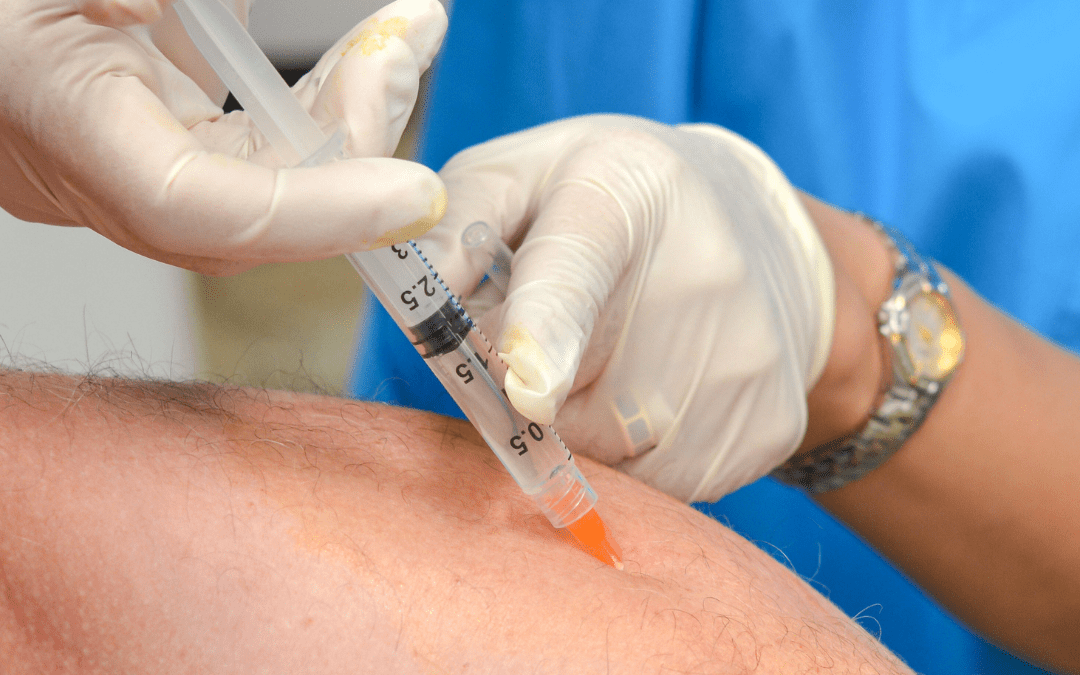Pushing your limits on the field, court, or track is what fuels your passion as an athlete. But the relentless pursuit of peak performance can take a toll. Whether it’s a nagging knee injury from years of pounding the pavement or a sudden rotator cuff tear sidelining you from your sport, injuries are a frustrating reality for athletes of all levels. Fortunately, advancements in sports medicine are offering innovative solutions to help you get back in the game faster and stronger. Stem cell therapy has emerged as a promising approach for accelerating healing, reducing pain, and improving joint function. However, not all stem cell sources are created equal. Here at Avid Sports Medicine, a leading provider of regenerative medicine solutions in the San Francisco Bay Area, we leverage the unique advantages of Wharton’s jelly-derived mesenchymal stem cells (MSCs) to unlock your body’s natural healing potential and empower you to reach your athletic potential.
Wharton’s Jelly: A Potent Source of Mesenchymal Stem Cells (MSCs) for Athlete Recovery in the San Francisco Bay Area
Mesenchymal stem cells (MSCs) have emerged as a promising therapeutic tool in sports medicine, offering the potential to accelerate healing, reduce pain, and improve joint function in athletes. However, the efficacy of stem cell therapy hinges heavily on the source of the MSCs.
Within the field of regenerative medicine, mesenchymal stem cells are particularly valued for their remarkable ability to differentiate into various cell types, the very building blocks required for tissue repair and regeneration in athletes. These cell types include bone, cartilage, and muscle, all crucial for optimal joint health and function. However, the yield and quality of MSCs vary significantly depending on the source tissue.
Wharton’s jelly, the gelatinous substance surrounding the umbilical cord and umbilical cord blood, has garnered significant attention in sports medicine due to its exceptional concentration of MSCs. Comparative studies have demonstrated that Wharton’s jelly can harbor up to 10-20 times more MSCs per unit volume than bone marrow, a traditionally employed source. This translates to a greater number of cells available for therapeutic application, potentially leading to more robust treatment outcomes. Additionally, Wharton’s jelly-derived MSCs exhibit a younger and more proliferative nature, signifying a heightened capacity for division and multiplication, further amplifying their regenerative potential.
Beyond sheer quantity, Wharton’s jelly-derived MSCs offer another critical advantage: their immunomodulatory properties. These properties translate to a reduced risk of transplant rejection, a significant concern associated with some stem cell therapies. This characteristic makes Wharton’s jelly-derived MSCs particularly well-suited for athletes seeking a safe and effective approach to recovery.
The Low Immunogenicity Advantage of Wharton’s Jelly MSCs for San Francisco Bay Area Athletes
A significant hurdle in stem cell therapy is the potential for transplant rejection. When stem cells are introduced into the body, the immune system might recognize them as foreign and launch an attack, ultimately hindering the therapeutic benefits. This is where Wharton’s jelly shines once again, offering a distinct advantage for athletes seeking stem cell therapy.
Wharton’s jelly-derived mesenchymal stem cells (MSCs) possess a unique property, low immunogenicity. This translates to a reduced risk of transplant rejection, making them a safer and more compatible option for athletes compared to other stem cell sources. Here’s how Wharton’s jelly MSCs tip the scales in favor of successful treatment:
Reduced Expression of MHC Antigens: Major histocompatibility complex (MHC) antigens are cellular markers that help the immune system identify “self” from “non-self.” Wharton’s jelly MSCs exhibit a lower expression of MHC class I and class II antigens compared to other MSC sources. This muted expression makes them less likely to be flagged by the immune system as foreign, significantly decreasing the risk of rejection.
Immunomodulatory Properties: Beyond low immunogenicity, Wharton’s jelly MSCs possess immunomodulatory properties. They can interact with the immune system and suppress its inflammatory response, further minimizing the risk of rejection. This immunomodulatory effect can also promote tissue healing and regeneration.
Fetal-Derived Source: Wharton’s jelly is derived from umbilical cord tissue, a fetal source. Fetal tissues are known to be immunologically naïve, meaning they haven’t encountered many foreign antigens yet. This immunological naivety translates into lower immunogenicity of Wharton’s jelly MSCs, making them more readily accepted by the recipient’s immune system.
The low immunogenicity of Wharton’s jelly-derived MSCs translates to several benefits for athletes undergoing stem cell therapy:
- Reduced Risk of Complications: By minimizing the risk of rejection, Wharton’s jelly MSCs offer a safer approach to treatment, potentially reducing the chance of adverse reactions.
- Improved Treatment Outcomes: A smoother integration of the transplanted cells into the injured tissue can lead to more effective treatment and faster recovery times, allowing athletes to return to their sport sooner.
- Broader Applicability: The low immunogenicity of Wharton’s jelly-derived MSCs makes them potentially suitable for a wider range of athletes, including those who may have a higher risk of rejection with other stem cell sources.
Understanding the Power of Growth Factors in Wharton’s Jelly for San Francisco Bay Area Athletes
While the high concentration and low immunogenicity of Wharton’s jelly-derived mesenchymal stem cells (MSCs) are significant advantages, their impact extends far beyond simply replacing damaged tissues. These MSCs also possess a potent arsenal of growth factors, further amplifying their regenerative potential and offering a unique benefit for athletes seeking to optimize their recovery and potentially enhance performance.
Growth factors are signaling molecules that play a critical role in various cellular processes essential for tissue healing and regeneration. They act like chemical messengers, instructing cells to proliferate, differentiate, and migrate, all crucial steps for repairing damaged tissues and restoring optimal function. Here’s how the rich profile of growth factors in Wharton’s jelly MSCs empowers athletes:
Enhanced Tissue Repair: Growth factors stimulate the proliferation and differentiation of various cell types, accelerating the repair process of injured tendons, ligaments, and muscles commonly encountered by athletes.
Improved Blood Flow: Angiogenesis, the formation of new blood vessels, is a vital component of tissue healing. Wharton’s jelly MSCs secrete Vascular Endothelial Growth Factor (VEGF), a potent angiogenic factor that promotes the development of new blood vessels in the injured area. This ensures a steady supply of oxygen and nutrients, facilitating faster healing and a quicker return to peak performance.
Reduced Inflammation: While inflammation is a natural part of the healing process, excessive inflammation can hinder recovery. Wharton’s jelly MSCs secrete Interleukin-10 (IL-10), an anti-inflammatory cytokine that helps modulate the immune response and reduce inflammation in the injured tissue. This promotes a more optimal healing environment and potentially minimizes pain and discomfort for athletes.
By harnessing the power of these growth factors, Wharton’s jelly MSCs offer a comprehensive approach to athletic recovery. They not only replace damaged cells but also create a favorable environment for tissue repair and regeneration, potentially leading to faster healing times, improved mobility, and a quicker return to top athletic form.
Unlocking Your Athletic Potential: The Future of Recovery with Wharton’s Jelly Stem Cell Therapy at Avid Sports Medicine
The innovative potential of Wharton’s jelly-derived mesenchymal stem cells (MSCs) has opened a new chapter in sports medicine, offering athletes in the San Francisco Bay Area a path to faster recovery, improved joint function, and potentially a return to peak performance. Avid Sports Medicine, a leading provider of regenerative medicine solutions in the Bay Area, leverages the unique advantages of Wharton’s jelly MSCs to create personalized treatment plans tailored to your specific needs.
Whether you’re a professional athlete pushing the limits on the field or a weekend warrior striving to maintain an active lifestyle, stem cell therapy can help you get back in the game stronger. At Avid Sports Medicine, our team of experienced sports medicine specialists and healthcare professionals will work closely with you to determine if Wharton’s jelly stem cell therapy is the right option for your recovery journey.
If you’re a San Francisco Bay Area athlete seeking a cutting-edge approach to recovery, contact Avid Sports Medicine today to schedule a consultation and explore how Wharton’s jelly stem cell therapy can help you get back in the game.

